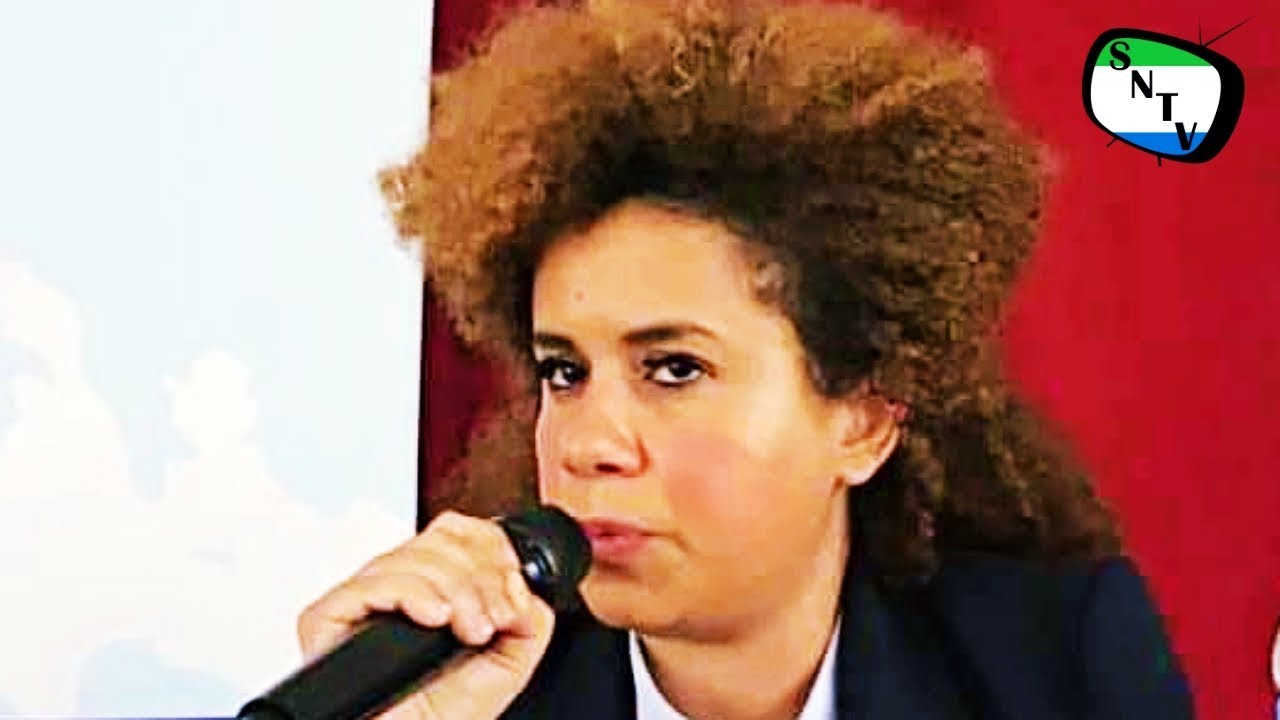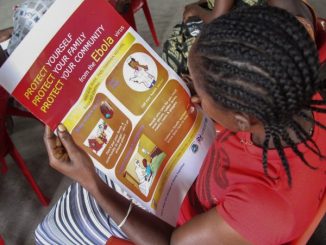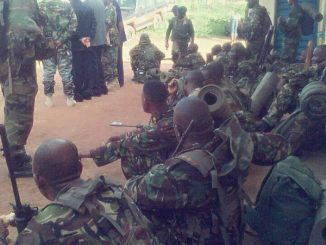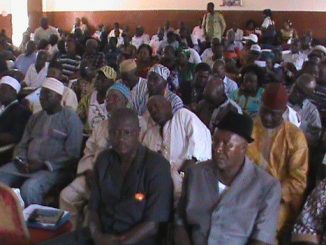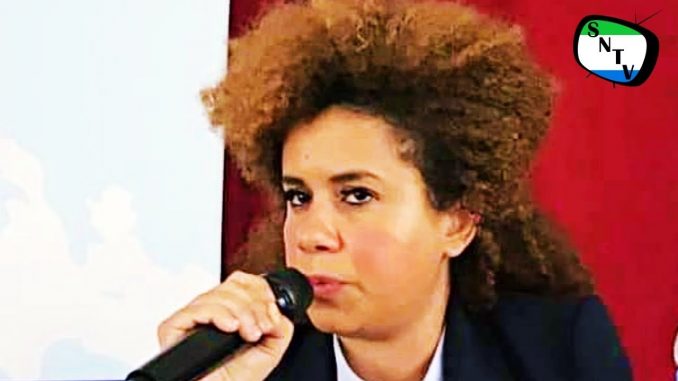
Statement by Mrs Basita Michael, former President of the Sierra Leone Bar Association, at a training organized by the British High Commission for new female journalists*
Distinguished Guests and Participants Good Morning and Thanks for inviting me to speak. In my capacity as a lawyer and the founder of Socio Political Magazine Sierraeye, I’m indeed delighted to be here with you all and with female journalists who I trust will truly make a difference in the profession of Journalism.
However, I’m sorry if my statement today kicks of on a negative note, but we cannot escape the reality and the reality is that the Public’s perception of the Media is a gloomy one. The Public’s view is that objective principled reporting still remains unattainable for most media practitioners in Sierra Leone. The Public’s view is that members of the media do not carry out thorough investigations before publishing stories and do not offer informed comment on matters of national and international concern.
Some newspaper carry provocative pieces exposing women’s bodies and depicting female sexuality. This certainly defeats media ethics. Some mainly depict women as only capable of doing household work and wearing loads of jewellery. The poor financial state of most of the media houses implies that the journalists are only paid a pittance. Many journalists are therefore inclined to practice blackmail, Public figures who have attempted to call the journalists’ bluff are rewarded with sustained negative press reporting. Journalists take bribes and allow their newspapers to be used for party political ends or for the settling of personal scores.
According to the TRC Some newspapers are in danger of becoming little more than scandal sheets, relying on provocative and, at times, dishonest headlines to promote sales. Many of the media houses, in particular print media, are owned by people who wear their political loyalties on their sleeves. Many of the newspapers have degenerated into political rags. In consequence the average Sierra Leonean has no confidence in the media, neither for newsworthy stories or informed, objective editorial opinion. Why am I saying this.
There is a choice you have to make. Do you choose to redeem and retrieve the reputation of Journalism to change the public perception or do you choose to continue to drag it to the mud and consolidate the current public perception. I hope and Pray for the sake of our country you will choose the latter and remain true to the ideals of the profession. Being a woman It is my sincere expectation that you will abide by your code of conduct and shake off the negative perception.
As women one of the ways you can do so is to promote gender justice and be gender sensitive in their reporting. six main areas: Right to Privacy; Pictorial Depiction of Women; Balanced Representation of Women; Projection of Gender Roles in Advertisements; Quality Coverage of Women’s Issues and Maintaining Professional Standards.
Avoid stereotypes that women are only interested in fashion, beauty, emotion, gossip and marriage. These stereotypes help keep women down. Professional reporting means portraying women fully. Women are as much interested in economics politics science etc as men are. Young girls can be more than beauty queens.
The pivotal role you play as journalists cannot be over emphasized. Your constitutional right to freedom of expression and speech was fashioned to bring about political and social changes desired by the people. For example through your honest thorough and informed writings the electorate gets an opportunity to assess the performance of the government in power as against the potential of an opposition in the wilderness, it keeps a government on its toes and gives the neutral citizens the opportunity to make their mind as to whether or not the government is deserving of a second chance at the next ballot. That is why it is important that Journalism be free from biases and remain neutral and humanitarian in its approach.
Objectivity should be the watchword. There should never be any room for distorted information amounting to misrepresentation of truths. Personally I do believe that Journalists are responsible for the survival of a bad regime and equally so they are responsible for the survival of a free democratic regime. In effect change cannot actually happen without responsible Journalism.
With a brave responsible press our politicians and public figures will be very careful in the way they handle their positions. This is because with the watchdog position of the media, they cannot afford to make a major mistake. This is what should make you proud to be a Sierra Leonean Journalist and Let no one fool you. you have at your disposal all the main weapons to be true to the ideals of Journalism.
I say so for the following reasons: Firstly to start with section 25 of the 1991 Constitution provides that no person shall be hindered in the enjoyment of his freedom of expression.
Secondly, in terms of the law of criminal libel the repeal of the repressive law will hopefully be passed soon by Parliament. A Bill Entitled the Public Order Amendment Act 2019 being an Act to amend the Public Order Act no 46 1965 by repealing Part V which deals with defamatory and seditious libel is now before Parliament and when it passes into law it will certainly be a great relief as the fear of a libel charge and jail time will no longer be there. I say when it is passed and not if because it is long over due as its one of the TRC recommendations and so therefore it is an obligation that our government must respect. Unfortunately no government since the TRC has respected that recommendation however it would appear that the current President is extremely keen to enforce that recommendation hence the Bill before Parliament which I will encourage you to join your colleagues in supporting the passing of the bill. I think the Minister of Information and the President must be commended for their actions in support of the repeal of the seditious and Criminal libel laws.
Thirdly, the Right to Access Information Act 2013 is a powerful tool that you can use to compel disclosure of information held by Public authorities and when they fail to do so any person may institute proceedings in a court to compel the head of a public authority to comply its core proactive publication obligations.
Therefore with the relative freedom of the press that the country is enjoying, with the repeal of the criminal libel law and the Right to access Information Act 2013 the sky is your limit to perform an effective public watchdog function on the conduct of public officials and powerful individuals in society.
However and significantly, that freedom of speech and expression, is not an open-ended fundamental right but is subject to laws imposing restrictions that are reasonably required in the interest of defence, public safety, public health or the running of essential services and for the purpose of protecting the reputations, rights and freedoms of other persons.
I think that one very serious mistake that we in this country make is to think and behave as if the constitutional right or democracy and/or freedom of speech or expression of the press mean freedom to say whatever one likes.
Well the 1991 Constitution does not entitle anyone to unlawfully publish, either negligently or intentionally, a defamatory matter about any individual. And this is what the civil law of defamation, defamatory and criminal libel in Public Order Act No 46 of 1965 seeks to prohibit and that is why we also have the IMC.
The discussion on the limitations on freedom of speech and expression, which includes freedom of the press and other media, would not be complete without a brief account of the law of contempt of court. The right of the media in a free and democratic society to criticize the courts is subject to sanction imposed by the law of contempt of court. In other words judges of our courts have the undoubted power to commit editors and newspaper commentators for the contempt on the ground of scandalizing the courts, but that power is sparingly used.
In essence while the public expects Journalists to be fearless in their criticisms and Writings Journalists and those who operate the media are not immune from the standards of probity and accountability. Newspapers or journalists that publish lies, knowing them to be lies run the risk of being suppressed buy the courts by way of injunction and damages through civil actions and imprisonment through law of contempt. Facts must be presented without exaggeration or distortion so that they remain immune to possible public resentment or adverse legal proceedings.
In the context of International Criminal Justice we have seen through the Media Case before the ICTR in 2003 that if media practitioners poisoned the minds of their readers, and by words and deeds caused the death of thousands of innocent civilians, they will be held accountable for genocide, incitement to genocide, conspiracy, and crimes against humanity, extermination and persecution.
Press and media freedom has to be matched by the highest journalistic standards. Just as a responsible press is necessary for democracy, an irresponsible press can also be a danger to democracy. With these words in mind I wish the journalists an informative and productive training and I look forward to reading and hearing your reports and possibly work with you in the future through Sierra eye.
Let me end by thanking the BHC for putting this program together. This workshop is only the latest example of its generous support for media development and capacity building in Sierra Leone.
Thank you

